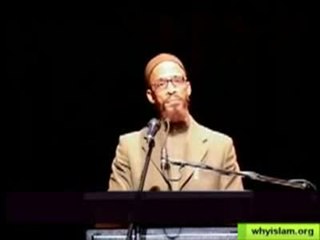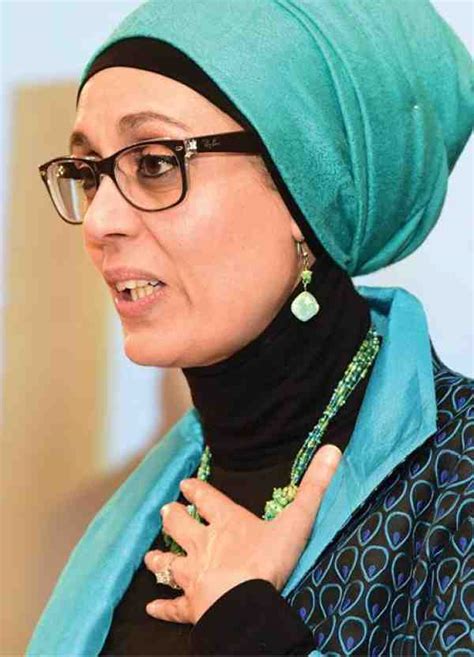A Quote by Mona Eltahawy
As a Muslim woman, I'm all too familiar with the media shorthand for 'Muslim' and 'woman' equaling Covered in Black Muslim Woman. She's seen, never heard. Visible only in her invisibility under that black burka, niqab, chador, etc.
Related Quotes
I think it's dangerous to look at every Muslim woman the same and to assume that every experience within the religion is the same, meaning that there are going to be strong and assertive women that are Muslim. There's going to be a more passive woman who just so happens to be a Muslim. There may be a funny, big-personality woman and she's Muslim.
Let’s not ask Barbara Walters about how Muslim women feel. Let’s not ask Tom Brokaw how Muslim women feel. Let’s not ask CNN, ABC, FOX, The London Times, or the Australia Times. Let’s not ask non-Muslims how Muslim women feel, how they live, what are their principles, and what are their challenges. If you want to be fair, ask a Muslim woman. Ask my wife. Ask my mother. Ask a Muslim woman who knows her religion, who has a relationship with her Creator, who is stable in her society, understands her responsibilities. Ask her.
I wholeheartedly believe that we can't organize just as women. There has to be specific messaging and an issue prioritization based on identity groups. Because when you ask a black woman what her top priority issues are versus a white woman versus a Muslim woman versus an undocumented woman, you're going to get... different answers.
The hijab or a variation of the word shows up eight times in the Quran. And it never means headscarf. And so what's happened is that the identity of a Muslim woman especially is being equated to this piece of cloth on her head. And in that ideology there's a very fundamental assumption that people need to think very deeply about, which is do you believe that a woman is too sexy for her hair?
Islam never differentiates between men and women as regards political rights and puts them on an equal footing. However, even if a woman is qualified for leadership, when it comes to posts of authority such as presidency, Muslim scholars unanimously agree that it is impermissible for a woman to assume such a post because in this case she is in charge of her people's affairs.
Flying while Muslim is nerve-racking in itself. Every time I prepare to fly, I have to make sure the anxiety I feel from all the stares I get from the moment I walk into the airport doesn't show on my face. This is what every woman in a hijab or bearded Muslim man experiences. But we are not alone: Sikh men who wear a turban experience the same anxiety because they encounter Islamophobia by dint of being perceived as Muslim.
While I might not have a specific experience that is fully American, there is still a knowledge, something that I logically understand as a black woman and a black woman who is existing in America and a black woman who is in the diaspora that are just known quantities that I think anyone can relate to who is black.
You are a white. The Imperial Wizard. Now, if you don't think this is logic you can burn me on the fiery cross. This is the logic: You have the choice of spending fifteen years married to a woman, a black woman or a white woman. Fifteen years kissing and hugging and sleeping real close on hot nights. With a black, black woman or a white, white woman. The white woman is Kate Smith. And the black woman is Lena Horne. So you're not concerned with black or white anymore, are you? You are concerned with how cute or how pretty. Then let's really get basic and persecute ugly people!
































